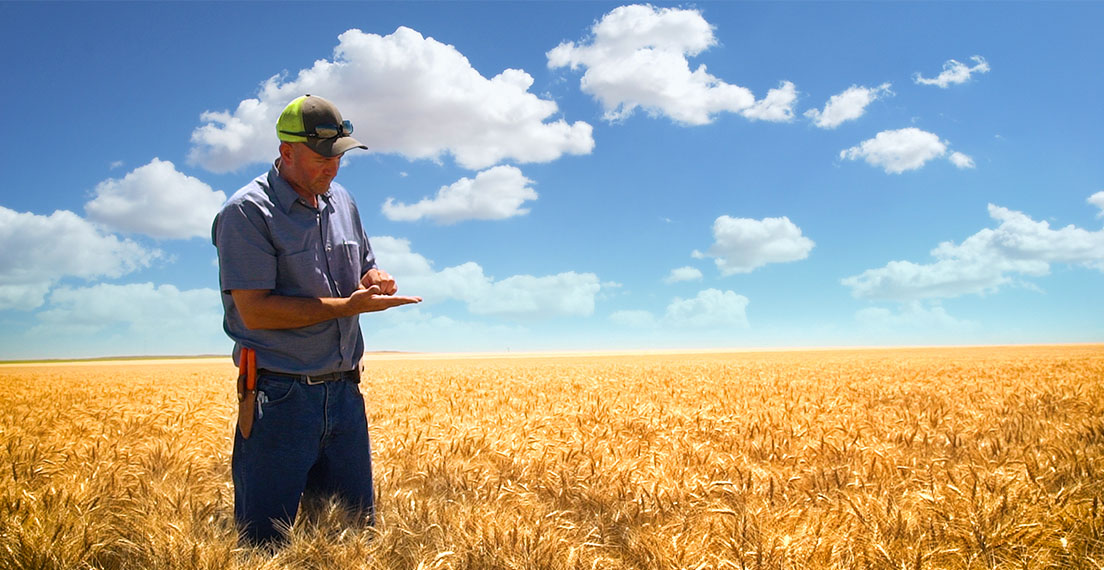Cargill CEO Highlights Farmers Role in Pandemic and Promoting Sustainability
By Jay Sjerven, Food Business News, June 8, 2021, Courtesy of Sosland Publishing Co.
U.S. wheat farmers know that promoting sustainability is increasingly important to the world’s buyers and wheat food processors. In this article, reprinted courtesy of Sosland Publishing Co., the CEO of Cargill, emphasizes how farmers and agricultural companies are moving forward.
Farmers and ranchers are heroes of the food system, playing a critical role in addressing the COVID-19 pandemic and embracing practices and technologies to produce food more sustainably, David MacLennan, chairman and chief executive officer, Cargill, told members of the National Grain and Feed Association on June 4 at that association’s 125th annual convention, which was held in person in Colorado Springs as well as virtually.
“When the world shut down, farmers, ranchers and workers across the food system stepped up to meet the challenge to produce the food and feed that billions of people and animals around the world depend on,” he said.

David W. MacLennan, Chairman, CEO, Cargill
Mr. MacLennan acknowledged that while disruptions of COVID-19 are still very much at play, the pandemic is not the only urgent challenge the food and agricultural industry faces.
“The greatest challenge we face is feeding a rapidly growing population, sustainably and responsibly – reducing our emissions, protecting our water resources, and improving the health of the soil our crops and harvests depend on,” he said. “Agriculture is part of the solution the world needs right now. Agriculture is how we’ll solve climate change and sustainably feed a growing population.”
Promoting Sustainability
Mr. MacLennan emphasized the need for broad and lasting efforts at every point in the supply chain to sustainably and responsibly feed a rapidly growing population estimated to reach close to 10 billion people by 2050.
“Inaction is not an option,” he said. “Too often, our industry gets blamed for climate change. I see a different story. Farmers and ranchers are the heroes of our food system. And they play a critical role in creating a more sustainable future for our industry, and the world. The changes we make at the roots of our supply chain will deliver the greatest impact – by reducing emissions, improving water quality, sequestering carbon, and building up the resilience of our soils for the next generation. Companies can set as many climate goals as we want. But without the support and leadership of farmers, none of it will happen. They’ve got to lead the way, and we’re here to partner with them in this important, ongoing effort.”
“When the world shut down, farmers, ranchers and workers across the food system stepped up to meet the challenge to produce the food billions of people depend on.”
Significant Strides
Mr. MacLennan said Cargill has made significant strides promoting sustainability, including its own science-based climate commitment to reduce greenhouse gas emissions in its global supply chains by 30% per ton of product by 2030. He noted the company also is working to support voluntary, farmer-led adoption of regenerative agriculture across 10 million acres of North American farmland over the same period.
Through financial contributions and partnerships across the supply chain, Cargill is supporting and training farmers, and helping remove financial barriers they may face, in rebuilding the health of their soils, planting cover crops, using more sustainable grazing practices, and making better use of their water, Mr. MacLennan explained. He pointed to the example of the Iowa Soil & Water Outcomes Fund, through which farmers may receive $30 to $50 per acre for practices such as cover crops, reduced tillage, and optimized nutrient management.
Mr. MacLennan added Cargill also is advancing research to evaluate the economic benefits of regenerative agriculture. He noted in a study of 100 farmers across nine states conducted by The Soil Health Institute, researchers found that soil health management systems increased incomes for 85% of farmers growing corn and 88% of farmers growing soybeans. Average incomes increased by $52 per acre for corn growers and $45 per acre for soybean growers. Mr. MacLennan added participating farmers reported reduced average costs, increased yields, better crop resilience against extreme weather events, and improved water quality.
“Farmers are leading the way,” he said. “They’re on the front lines of climate change every day. And we need to lift up the good work they’re doing already. The benefits of regenerative agriculture are clear. But so are the barriers. To see change, we have to work together. Agriculture is how we’ll get it done.”
Read other stories in this series:
Special Climate and Sustainability Committee Launched on Earth Day
Precision Agriculture Improves Environmental Stewardship While Increasing Yields
U.S. Farmers Always Think About Economic and Environmental Sustainability
Technology, Innovative Farming Practices Advance Wheat Farm Sustainability
Minnesota Farmer Spread the News with His Conservation Practices
U.S. Farmers Embrace Conversation Practices
Farmers Look to New Technologies to Foster Precision Agriculture


